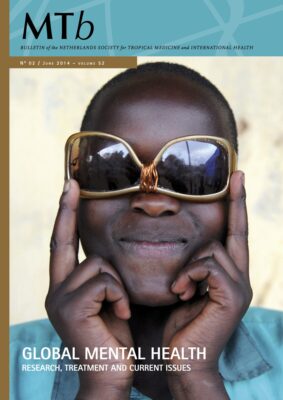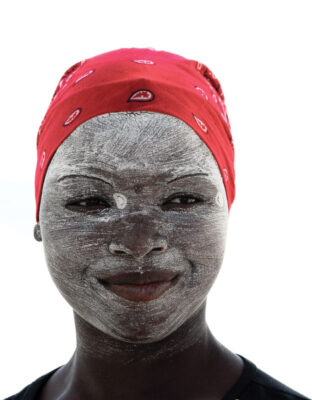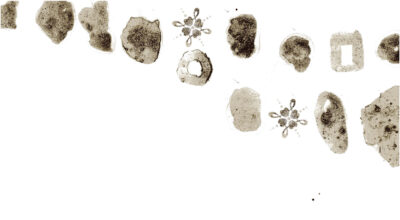
Global Mental Health 1
Editorial
Finally an edition of MTb fully dedicated to mental health. Given the fact that 14% of the global burden of disease is attributed to mental health disorders and the current mental health gap, it is about time. This blind spot is not a surprise, as until late in the past century even renowned researchers were convinced that Africans were not suffering from psychiatric disorders[1]. As reported in a 1953 WHO publication: ‘Africans are highly dependent upon physical and emotional stimulation, lacking in spontaneity, foresight, tenacity, judgment and humility, inapt for sound abstraction and for logic, given to phantasy and fabrication; and in general unstable, impulsive, unreliable, irresponsible and living in the present without reflection or ambition or regard for the rights of people outside his own circle’. It reflects long-held ignorance and colonial racism and may explain the lack of interest in dealing with these issues. Things have changed. There is recognition of the universality of mental health disorders. What has not changed dramatically is a lack of access to mental health care and treatment. Most people affected by mental disorders – 75% in many low-income countries – do not have access to the treatment needed. Almost half the world’s population lives in countries where there is one psychiatrist to serve 200,000 or more people[2]. Several articles in this edition of MTb address current actions in closing the mental health gap. Pim Scholte, psychiatrist with the Equator Foundation, illustrates the introduction of easy-to-implement treatment methods by non-specialists. Kaz de Jong, MSF mental health specialist, details what is achieved in dealing with the mental health gap in humanitarian emergencies. A step-by-step approach is promoted, distinguishing between different stages of emergency from acute to longterm crisis. Taking a multi-layered and comprehensive approach is also illustrated in the article of child psychologist Ria Stiefelhagen and cultural anthropologist Relinde Reiffers. In their article they describe the aftermath of the brutal attack on the school in Breslan, North Ossetia, ten years ago. Consequent actions to deal with the trauma included the development of a mental health and psychosocial support programme, using the school as an entry point. The World Health report on mental health estimates that 1 in 10 people who experience traumatic events will have serious mental health problems, and another 10% will develop behaviour that hinders the ability to function effectively. Hans Rohlof, psychiatrist with Centrum ’45, is an advocate of the use of cultural interview in mental health, especially among refugees and migrants. The article of Esther Jurgens explores the role of culture in diagnosis, coping and treatment of refugees. In a blog, Roos Korste reports on her encounters with the mental health situation in Kenya. Rembrant Aarts, psychiatrist, details on the development of a mental health curriculum in Mozambique. The problem-based learning approach appears promising as a way to tackle serious mental health workers shortages. However, as several authors in this edition emphasize, understanding the local practices and the local ‘idioms of distress’ are equally important steps in improving mental health around the globe. We hope this edition on mental health triggers the reader’s interest in mental health issues. Many thanks go out to Peter Ventevogel for his valuable contribution to this edition of MTb.
Esther Jurgens
Joost Commandeur





















































